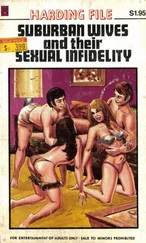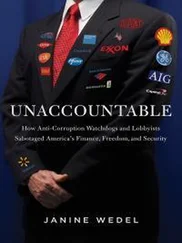Andrea Dworkin - Our Blood - Prophecies and Discourses on Sexual Politics
Здесь есть возможность читать онлайн «Andrea Dworkin - Our Blood - Prophecies and Discourses on Sexual Politics» весь текст электронной книги совершенно бесплатно (целиком полную версию без сокращений). В некоторых случаях можно слушать аудио, скачать через торрент в формате fb2 и присутствует краткое содержание. Жанр: Публицистика, на английском языке. Описание произведения, (предисловие) а так же отзывы посетителей доступны на портале библиотеки ЛибКат.
- Название:Our Blood: Prophecies and Discourses on Sexual Politics
- Автор:
- Жанр:
- Год:неизвестен
- ISBN:нет данных
- Рейтинг книги:3 / 5. Голосов: 1
-
Избранное:Добавить в избранное
- Отзывы:
-
Ваша оценка:
- 60
- 1
- 2
- 3
- 4
- 5
Our Blood: Prophecies and Discourses on Sexual Politics: краткое содержание, описание и аннотация
Предлагаем к чтению аннотацию, описание, краткое содержание или предисловие (зависит от того, что написал сам автор книги «Our Blood: Prophecies and Discourses on Sexual Politics»). Если вы не нашли необходимую информацию о книге — напишите в комментариях, мы постараемся отыскать её.
Our Blood: Prophecies and Discourses on Sexual Politics — читать онлайн бесплатно полную книгу (весь текст) целиком
Ниже представлен текст книги, разбитый по страницам. Система сохранения места последней прочитанной страницы, позволяет с удобством читать онлайн бесплатно книгу «Our Blood: Prophecies and Discourses on Sexual Politics», без необходимости каждый раз заново искать на чём Вы остановились. Поставьте закладку, и сможете в любой момент перейти на страницу, на которой закончили чтение.
Интервал:
Закладка:
naive. I had not learned my proper place. I knew what I was
rebelling against in life, but I did not know that literature
had the same sorry boundaries, the same absurd rules, the
same cruel proscriptions. * It was easy enough to deal with
me: I was a bitch. And my book was sabotaged. The
publisher simply refused to fill orders for it. Booksellers
wanted the book but could not get it. Reviewers ignored the
* I had been warned early on about what it meant to be a girl, but I hadn’t
listened. “You write like a man, ” an editor wrote me on reading a draft
of a few early chapters of Woman Hating. “When you learn to write like
a woman, we will consider publishing you. ” This admonition reminded
me of a guidance counselor in high school who asked me as graduation
approached what I planned to be when I grew up. A writer, I said. He
lowered his eyes, then looked at me soberly. He knew I wanted to go to a
superb college; he knew I was ambitious. “What you have to do, ” he
said, “is go to a state college—there is no reason for you to go
somewhere else—and become a teacher so that you’ll have something to
fall back on when your husband dies. ” This story is not apocryphal. It
happened to me and to countless others. I had thought both the guidance
counselor and the editor stupid, individually stupid. I was wrong. They
were not individually stupid.


book, consigning me to invisibility, poverty, and failure.
The first speech in Our Blood (“Feminism, Art, and My
Mother Sylvia”) was written before the publication of
Woman Hating and reflects the deep optimism I felt at that
time. By October, the time of the second speech in Our
Blood (“Renouncing Sexual ‘Equality’”), I knew that I was
in for a hard time, but I still did not know how hard it was
going to be.
“Renouncing Sexual ‘Equality’” was written for the
National Organization for Women Conference on Sexuality
that took place in New York City on October 12, 1974. I
spoke at the end of a three-hour speakout on sex: women
talking about their sexual experiences, feelings, values.
There were 1100 women in the audience; no men were
present. When I was done, the 1100 women rose to their
feet. Women were crying and shaking and shouting. The
applause lasted nearly ten minutes. It was one of the most
astonishing experiences of my life. Many of the talks I gave
received standing ovations, and this was not the first, but I
had never spoken to such a big audience, and what I said
contradicted rather strongly much of what had been said
before I spoke. So the response was amazing and it
overwhelmed me. The coverage of the speech also overwhelmed me. One New York weekly published two vilifications. One was by a woman who had at least been present.
She suggested that men might die from blue-balls if I were
ever taken seriously. The other was by a man who had not
been present; he had overheard women talking in the lobby.
He was “enraged. ” He could not bear the possibility that “ a
woman might consider masochistic her consent to the means
of my release. ” That was the “danger Dworkin’s ideology
represents. ” Well, yes; but both writers viciously distorted
what I had actually said. Many women, including some
quite famous writers, sent letters deploring the lack of
fairness and honesty in the two articles. None of those


letters were published. Instead, letters from men who had
not been present were published; one of them compared my
speech to H itler’s Final Solution. I had used the words
“limp” and “penis” one after the other: “limp penis. ” Such
usage outraged; it offended so deeply that it warranted a
comparison with an accomplished genocide. Nothing I had
said about women was mentioned, not even in passing. The
speech was about women. The weekly in question has since
never published an article of mine or reviewed a book of
mine or covered a speech of mine (even though some of my
speeches were big events in New York City). * The kind of
fury in those two articles simply saturated the publishing
establishment, and my work was stonewalled. Audiences
around the country, most of them women and men,
continued to rise to their feet; but the journals that one
might expect to take note of a political writer like myself, or
a phenomenon like those speeches, refused to acknowledge
my existence. There were two noteworthy if occasional
exceptions: Ms. and Mother Jones.
In the years following the publication of Woman Hating,
it began to be regarded as a feminist classic. The honor in
this will only be apparent to those who value Mary
Wollstonecraft’s A Vindication o f the Rights o f Women or
Elizabeth Cady Stanton’s The Woman’s Bible. It was a great
honor. Feminists alone were responsible for the survival of
Woman Hating. Feminists occupied the offices of Woman
* After Our Blood was published, I went to this same weekly to beg—yes,
beg—for some attention to the book, which was dying. The male writer
whose “release” had been threatened by “Renouncing Sexual ‘Equality’ ” asked to meet me. He told me, over and over, how very beautiful Our Blood was. “You know—urn—um, ” I said, “that—urn, urn—That
Speech is in Our Blood —you know, the one you wrote about. ” “So
beautiful, ” he said, “so beautiful. ” The editor-in-chief of the weekly
wrote me that Our Blood was so fine, so moving. But Our Blood did not
get any help, not even a mention, in those pages.


Hating 's publisher to demand that the book be published in
paper. Phyllis Chesler contacted feminist writers of reputation all over the country to ask for written statements of support for the book. Those writers responded with astonishing generosity. Feminist newspapers reported the suppression of the book. Feminists who worked in bookstores scavenged distributors’ warehouses for copies of the book and wrote over and over to the publisher to demand
the book. Women’s studies programs began using it.
Women passed the book from hand to hand, bought second
and third and fourth copies to give friends whenever they
could find it. Even though the publisher of Woman Hating
had told me it was “mediocre, ” the pressure finally resulted
in a paperback edition in 1976: 2500 leftover unbound
Читать дальшеИнтервал:
Закладка:
Похожие книги на «Our Blood: Prophecies and Discourses on Sexual Politics»
Представляем Вашему вниманию похожие книги на «Our Blood: Prophecies and Discourses on Sexual Politics» списком для выбора. Мы отобрали схожую по названию и смыслу литературу в надежде предоставить читателям больше вариантов отыскать новые, интересные, ещё непрочитанные произведения.
Обсуждение, отзывы о книге «Our Blood: Prophecies and Discourses on Sexual Politics» и просто собственные мнения читателей. Оставьте ваши комментарии, напишите, что Вы думаете о произведении, его смысле или главных героях. Укажите что конкретно понравилось, а что нет, и почему Вы так считаете.












